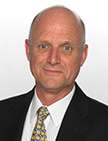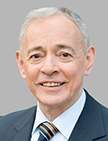Is Australia Friendlier to Libertarianism Than the U.S.?

Libertarianism is a thing, the headlines tell us—and that seems to be true now that two libertarian-leaning lawmakers occupy seats in the Senate. Wait…two senators? Yes, two: Senator David Leyonhjelm from New South Wales and Senator Bob Day from South Australia. After their election, The Australian proclaimed them "two home-grown Ron Pauls."
Strictly speaking, Leyonhjelm (at right, above) is the more overtly libertarian of the two, favoring marijuana legalization, lower taxes, same-sex marriage, and smaller government. He was elected as a candidate of the classical liberal/libertarian Liberal Democratic Party. A quote on his Facebook page boasts, "But there are two guiding principles that determine our approach to legislation—we would never vote for an increase in taxes and we would never vote for a reduction in liberty."

Day has a long history of free-market activism and was a board member of the libertarian Centre for Independent Studies, but he was elected as the candidate (and chairman) of the populist/social conservative Family First Party. Even so, he told the Australian Broadcasting Corporation, "Libertarianism appeals to the innate desire to be free, to be liberated; people essentially want to be left alone to enjoy the fruits of their labour."
If he can stick to that sentiment, his party affiliation won't matter.
That article quoting Day also noted that "the former policy director of libertarian think tank The Institute of Public Affairs (IPA) has been appointed Human Rights Commissioner." The IPA has been called out during parliamentary question time as a "sinister" behind-the-scenes player in Australian policy making—specifically, in revising the Racial Discrimination Act to strengthen free speech protections—so it's apparently having an impact.
The Australian Broadcasting Corporation piece also included a hopeful note that libertarianism may have appeal across the country's political spectrum:
Cassandra Wilkinson, a former senior adviser to NSW Labor Premier Kristina Keneally, hopes new, Labor-aligned think tanks such as the McKell Institute take classically liberal ideas more seriously. "The poor can least afford the rip offs of markets made inefficient by superfluous government intervention or regulation," she says.
"Any self-respecting leftie would claim ending slavery as a left wing achievement along with ending the rule of man over woman, white over black, straight over gay, adult over child, abled over disabled; and yet ending the rule of government over everybody has become characterised as a right wing fanaticism."
For what it's worth, on the Heritage Foundation's Index of Economic Freedom, Australia currently ranks at number three, behind Hong Kong and Singapore, and well ahead of the U.S. at 12.
Australia's economic freedom score is 82, making its economy the 3rd freest in the 2014 Index. Its overall score is 0.6 point lower than last year, with a gain in investment freedom outweighed by declines in monetary freedom and labor freedom.
Australia also does well on the State of World Liberty Index, which groups the civil liberties portion of the Freedom House score, the economic liberty scores from the Fraser Institute and the Heritage Foundation, and the press freedom scores from Reporters without Borders. The Land Downunder comes in at fourth place, compared to the United States at 19.
So Australian libertarians may have a bit of a head start over their American counterparts. Keep it going, folks.


Show Comments (93)